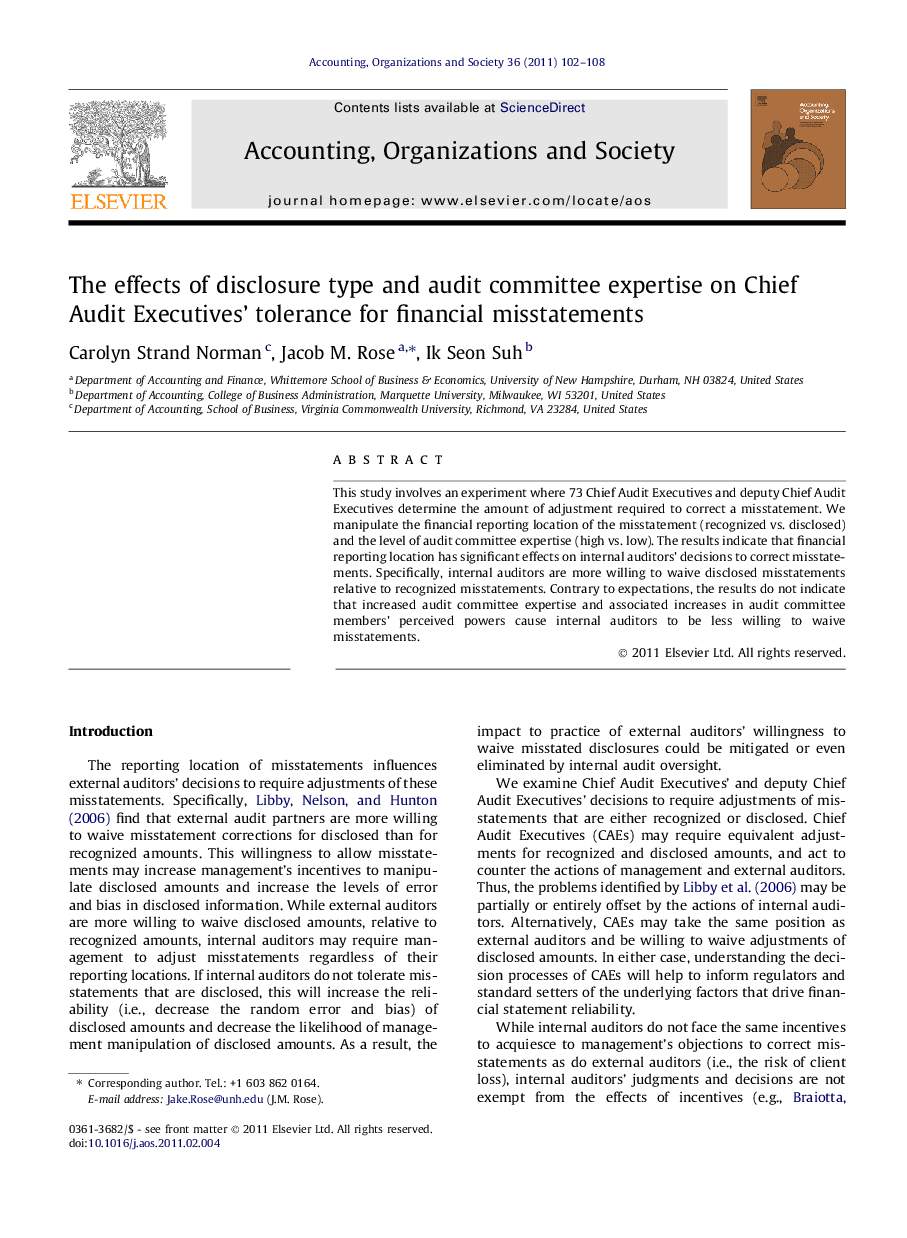| کد مقاله | کد نشریه | سال انتشار | مقاله انگلیسی | نسخه تمام متن |
|---|---|---|---|---|
| 878738 | 911130 | 2011 | 7 صفحه PDF | دانلود رایگان |

This study involves an experiment where 73 Chief Audit Executives and deputy Chief Audit Executives determine the amount of adjustment required to correct a misstatement. We manipulate the financial reporting location of the misstatement (recognized vs. disclosed) and the level of audit committee expertise (high vs. low). The results indicate that financial reporting location has significant effects on internal auditors’ decisions to correct misstatements. Specifically, internal auditors are more willing to waive disclosed misstatements relative to recognized misstatements. Contrary to expectations, the results do not indicate that increased audit committee expertise and associated increases in audit committee members’ perceived powers cause internal auditors to be less willing to waive misstatements.
Research highlights
► CAEs tolerate more misstatement in disclosed amounts than in recognized amounts.
► Increased audit committee financial expertise increases CAE’s perceived power.
► Audit committee expertise does not lead to larger misstatement corrections.
► Internal and external auditors act to decrease the reliability of disclosed amounts.
Journal: Accounting, Organizations and Society - Volume 36, Issue 2, February 2011, Pages 102–108